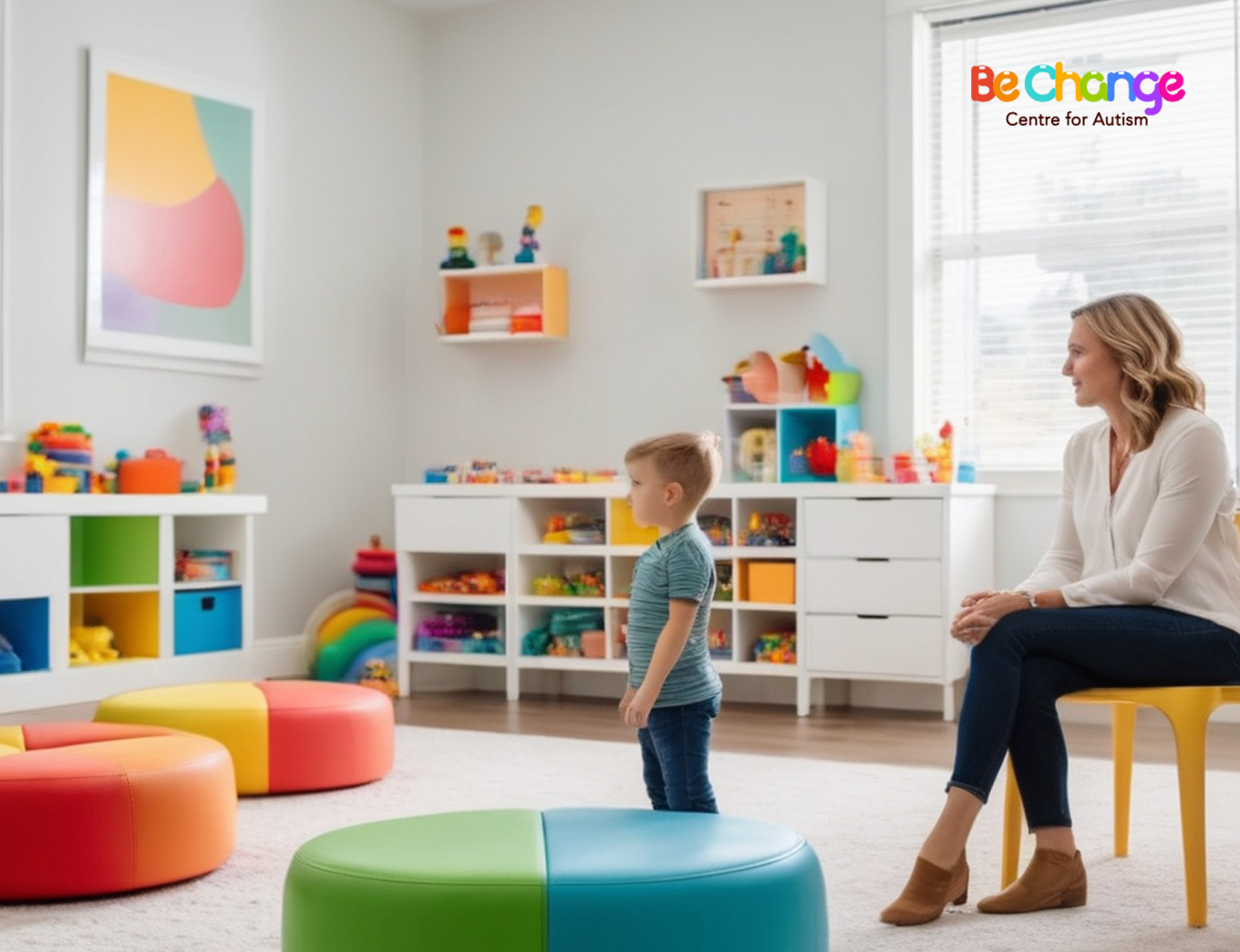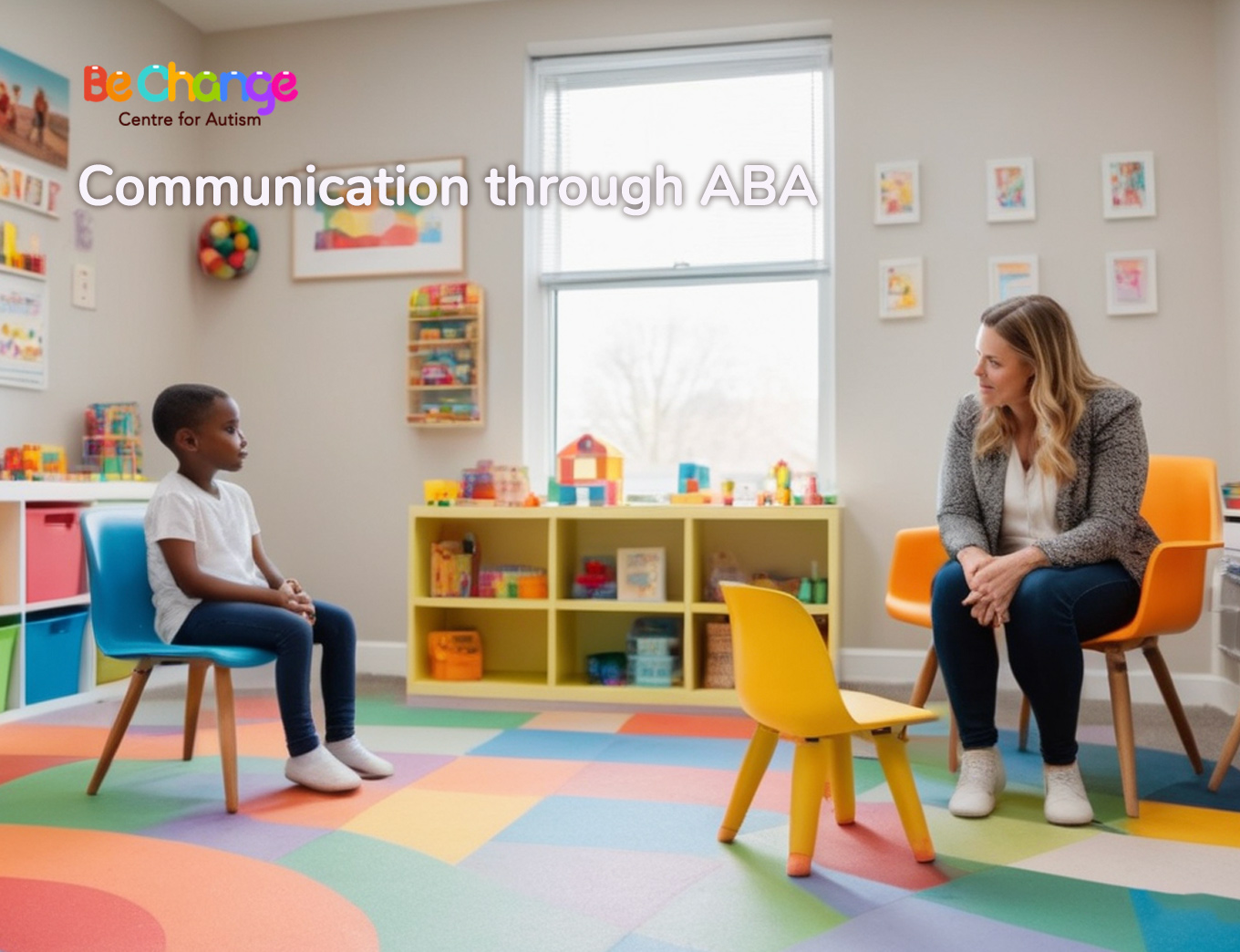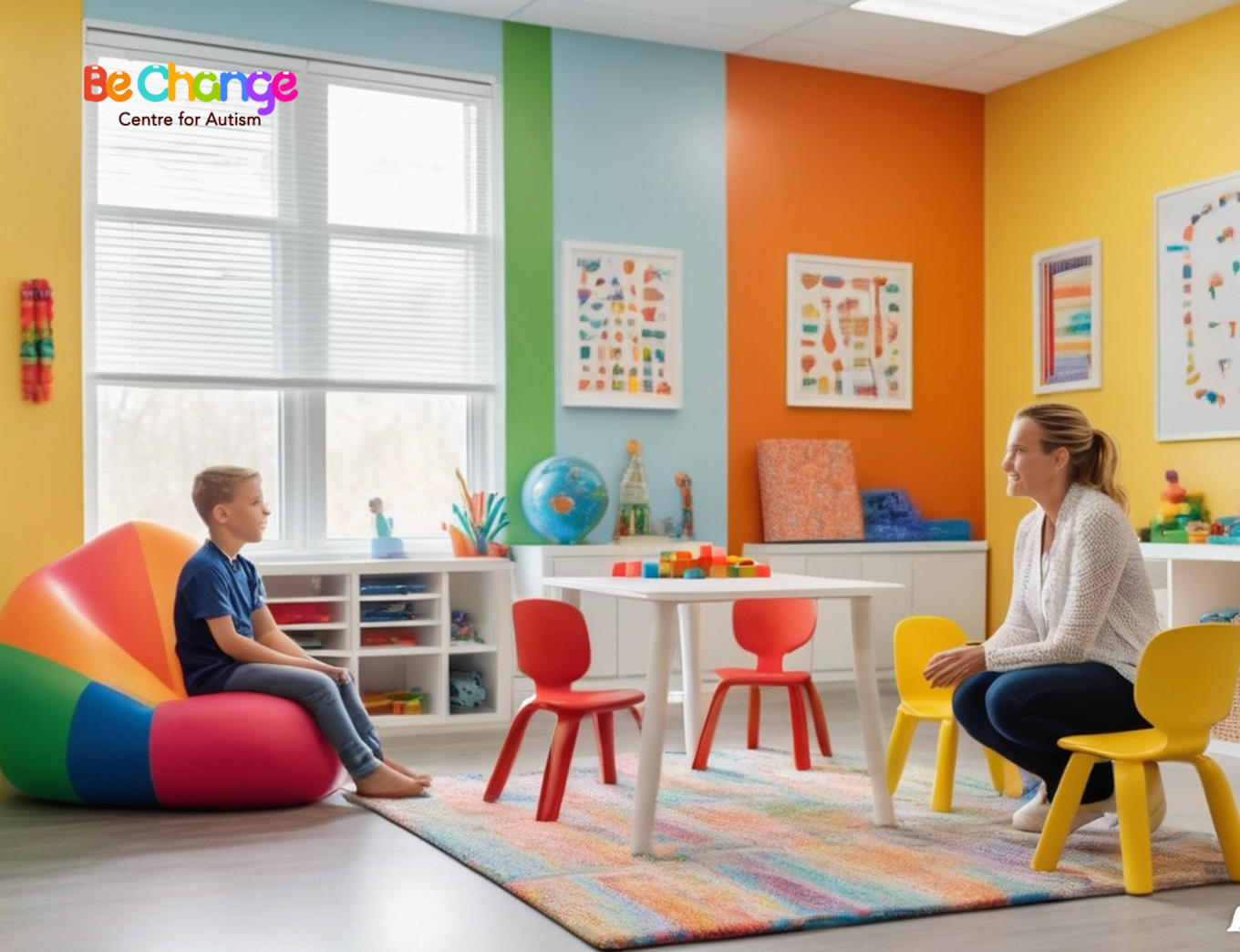At the BeChange Center for Autism, we are committed to helping children develop essential communication skills through Verbal Behavior (VB) Therapy. One story that stands out to me is that of a 6-year-old boy named Sam. When Sam first came to us, he struggled with basic communication. He had a limited ability to express his needs and wants, which often led to frustration and behavioral challenges.

Sam’s parents were eager to find a solution that would help their son communicate more effectively. After an initial assessment, we identified that Sam had significant deficits in his verbal behavior repertoire, particularly in making requests (mands), labeling objects (tacts), and engaging in conversational exchanges (intraverbals). We knew that VB therapy, with its focus on functional language, would be crucial for Sam’s development.
We began by teaching Sam to make requests, starting with mands. Understanding that motivation is key, we identified toys and activities that Sam was highly interested in. One of his favorites was a small car. During our sessions, we would place the car just out of his reach. When he showed interest, we prompted him to say “car” or use a sign for “car.” Initially, he needed a lot of support, but each time he made an attempt, we immediately gave him the car as a reward. This positive reinforcement helped him understand the power of communication. Gradually, Sam began to mand for the car with less prompting, and soon he was able to request it independently.
Building on this success, we moved on to teaching tacts. We used everyday items and pictures to help Sam learn new words. We started with objects he encountered frequently, like “apple,” “dog,” and “book.” During sessions, we would hold up an item or picture and ask, “What is this?” If Sam didn’t know the word, we provided the answer and encouraged him to repeat it. Over time, with consistent reinforcement, Sam’s vocabulary expanded. He became more confident in labeling items around him, which significantly reduced his frustration levels.
Check out our new branch : https://maps.app.goo.gl/SNDxav7fybanc9Qe6

One of the more challenging areas was developing Sam’s conversational skills, known as intraverbals. Engaging in back-and-forth exchanges was difficult for him, but we took it step by step. We began with simple question-and-answer routines. For example, we would ask, “What’s your name?” and prompt him to respond with “Sam.” As he mastered these basic exchanges, we introduced more complex questions like, “What did you do today?” Initially, Sam’s responses were brief, but with practice and encouragement, he started providing more detailed answers.
Throughout this process, we maintained close collaboration with Sam’s parents. We provided them with training on how to reinforce these skills at home and shared progress updates regularly. This partnership was crucial for Sam’s success, as it ensured that he had consistent support across different environments.
We also worked on generalizing Sam’s skills. It’s one thing to use communication in a therapy setting, but our goal was for Sam to apply these skills in his everyday life. We practiced mands, tacts, and intraverbals in various settings, such as during playtime, mealtime, and even at the grocery store. This helped Sam understand that communication is useful everywhere, not just during therapy sessions.
As the months went by, the progress Sam made was remarkable. He went from being a frustrated and largely non-verbal child to someone who could express his needs, label his environment, and engage in simple conversations. The transformation was not only evident in his communication skills but also in his behavior. With the ability to express himself, Sam’s frustration and related behavioral issues significantly decreased.
One of the most rewarding moments was seeing Sam interact with his peers. He started initiating play by asking other children to join him, something he had never done before. His parents were overjoyed, sharing stories of how their son was now more engaged and happy at home and in social settings.
Contact us today : https://bechange.in/contacts/

The journey wasn’t always easy, but Sam’s story is a testament to the effectiveness of VB therapy and the dedication of everyone involved. At the BeChange Center for Autism, we believe in the potential of every child. Sam’s success highlights how targeted, functional language training can make a profound difference in the lives of children with autism. By focusing on mands, tacts, and intraverbals, and with the unwavering support of his family, Sam was able to unlock his ability to communicate and connect with the world around him.
Join Autism Support Facebook Group : https://www.facebook.com/groups/SupportAutism
